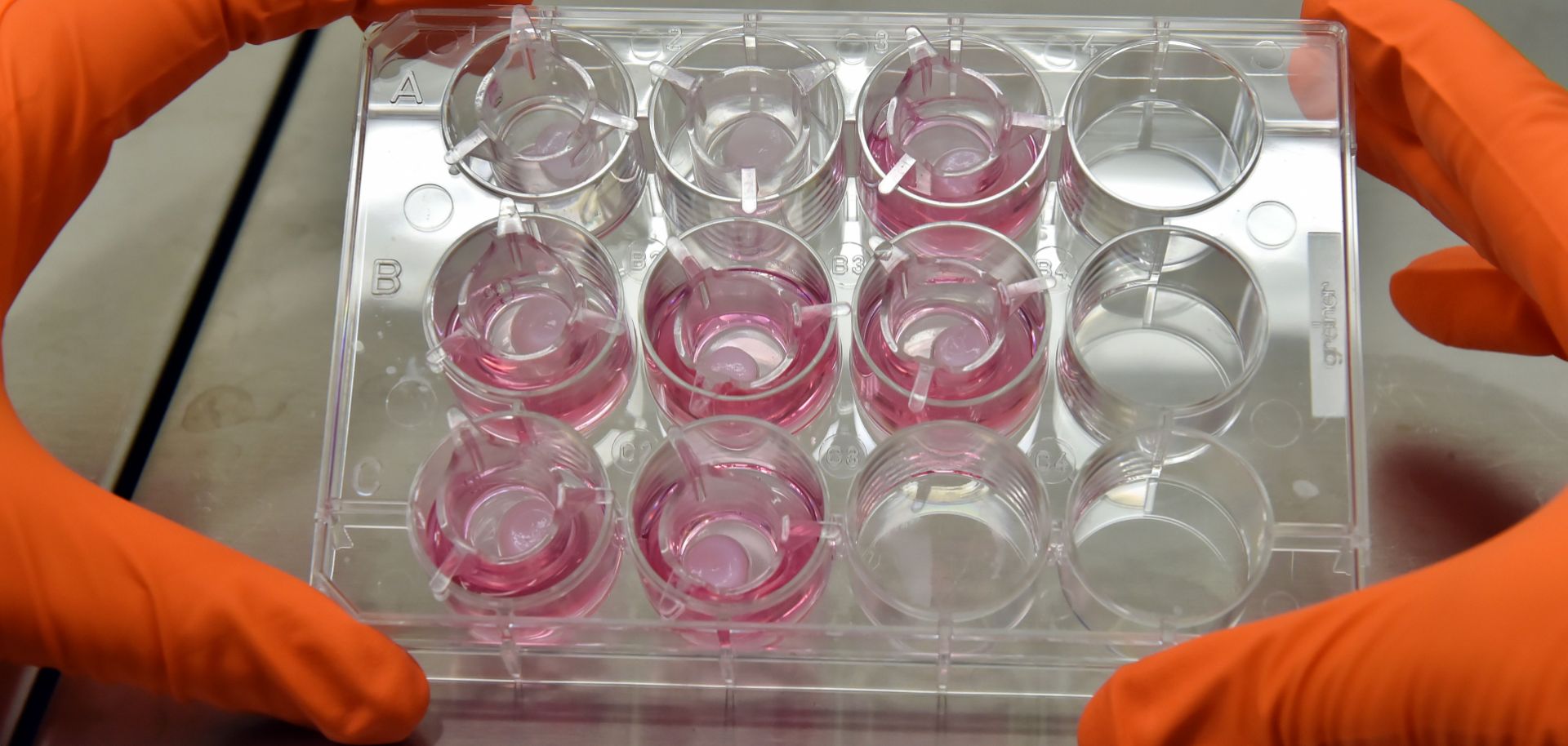ASSESSMENTS
How the EU's Stance on Gene Editing May Evolve
Jan 29, 2018 | 18:21 GMT

Countries around the world are working to decide how to regulate efficient, cheap methods of gene editing such as the CRISPR technique.
(GEORGES GOBET/AFP/Getty Images)
Highlights
- Emerging technologies, such as CRISPR, are forcing regulators in the European Union and elsewhere to consider legally differentiating between genetically edited organisms and genetically modified organisms.
- Researchers continue to develop and improve gene-editing techniques, but wider commercial use will be contingent upon greater legislative approval.
- Individual EU members, rather than the bloc as a whole, are likely to implement any new regulations on genetic editing techniques.
Subscribe Now
SubscribeAlready have an account?
